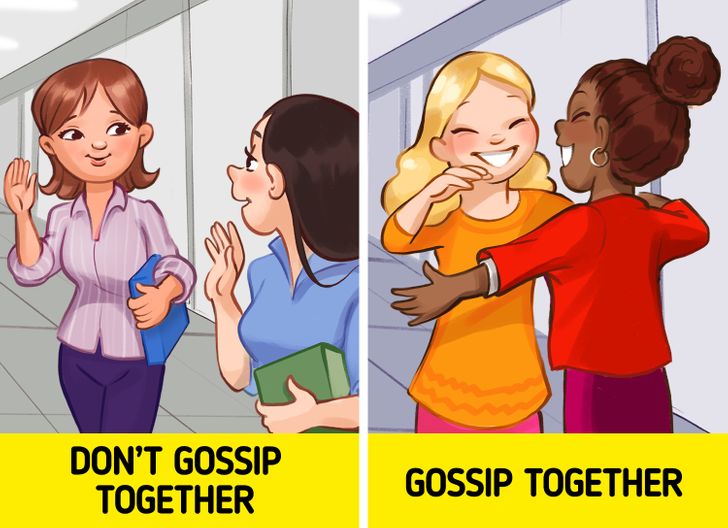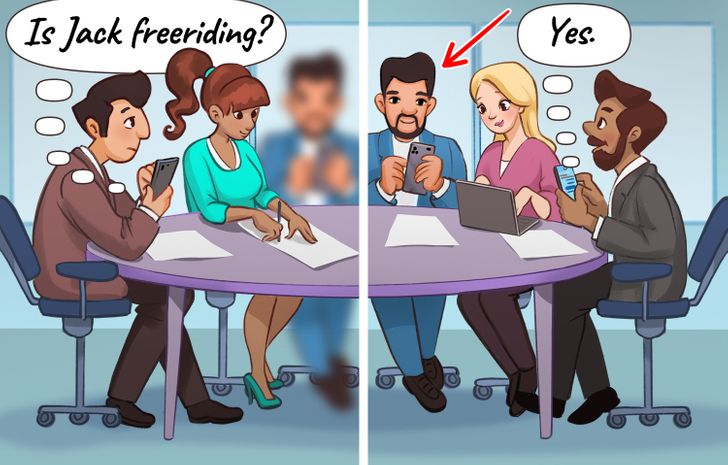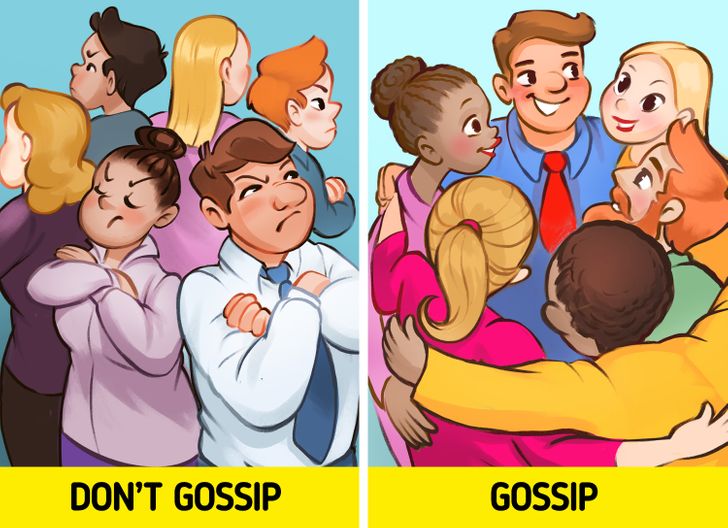"Gossiping is actually good for your social life"? Try telling that to the bullying victims of the world.
Gossiping Is Actually Good for Your Social Life, and Here’s Why
Gossip is something we associate with envious people who are jealous of others and like to spread rumors. Whether it’s discussing someone’s looks or gloating over their misfortunes, we see it as something negative. But in reality, it’s not as bad as we think, and it can even benefit us.
We at Bright Side came across research that showed us what gossip truly is. And we’re excited to tell you all about it.
Gossip doesn’t have to be negative.

When we think of gossip, most of us probably think of trash talk and spreading rumors. However, about 14% of our daily conversations consist of gossip, and most of the time it’s neutral rather than positive or negative, a study suggests.
Gossiping can even be beneficial.

Research suggests that gossiping can help us build social connections and learn through other people’s experiences. When we share important information about ourselves or other people with each other, it can feel rewarding and help us build trust and stronger bonds.
What we discuss can also influence our future behavior. When we compare our impressions of other people, it can help us understand our feelings better and also establish what kind of behavior is and isn’t acceptable. Gossip can also promote cooperation.
Researchers created a game to test the merits of gossiping.

Researchers decided to find out more about why people gossip and what purpose it serves, and they created an online game. In it, participants played 10 rounds together in 6-person groups. In each round, they were given 100 points, and they could either keep the money for themselves or invest any portion of it into a group fund. That sum was then multiplied by 1.5 and divided equally among the players.
Sometimes the participants could only see what a couple of other players were doing, and not all of them could do so. In these rounds, they were allowed to privately chat with another member of the group. Just like we can’t always learn about someone’s behavior first-hand in real life, the participants had to rely on the information other group members privately shared with them about whether someone in the group was freeriding or not. This information would help them decide whether they wanted to play together again.

This type of game is known as a public goods game. Usually, players contribute less over time in such games. However, in this game, if the participants were allowed to communicate with each other, cooperation declined less over time. The results also showed that players who chatted with each other felt more connected with each other.
This proves that gossiping is actually an important part of our lives that can help us build social connections and even promote cooperation.
Do you gossip? What do you usually discuss? Who do you gossip with? Do you agree with what the research has uncovered?
Comments
I disagree with research
most of the time gossiping cause to create deadly war , battle, fights and the people who believe false gossips are the main victims indeed.
Gossip actually used to mean having a good female friend, then went to idle chatter. But due to the lack of women’s right back then it became known as negative. I thought this was an interesting fact about the actual word gossip. While gossiping nowadays is spreading rumors.
Related Reads
10 Necessary Skills To Teach Your Child Before They Turn 13

12 People Share Vile Events That Still Haunt Them to This Day

18 People Who Are So Good With Animals, the How-to-Train-a-Dragon Guy Would Envy Them

Pamela Anderson Is Unrecognizable at Met Gala 2025 With Drastic New Haircut

18 Girls Who Don’t Want to Waste Their Life on Wearing Boring Hairstyles

13 Shocking Things People Found on Their Partner’s Gadgets That They Weren’t Ready For

19 People Shared Stories About Their Shoes That We Won’t Forget Any Time Soon

I’m Refusing to Allow My Daughter’s Biological Mom to Meet Her

I Trusted My Ex’s New Partner With Our Son, That Was a Mistake

15 Times People Received Such Great Service They Had to Share Their Experience With the World

My DIL Permitted Me Living With Them, But Only If I Follow 3 Harsh Rules

18 People Who Uncovered Shocking Things They Weren’t Supposed to Know
